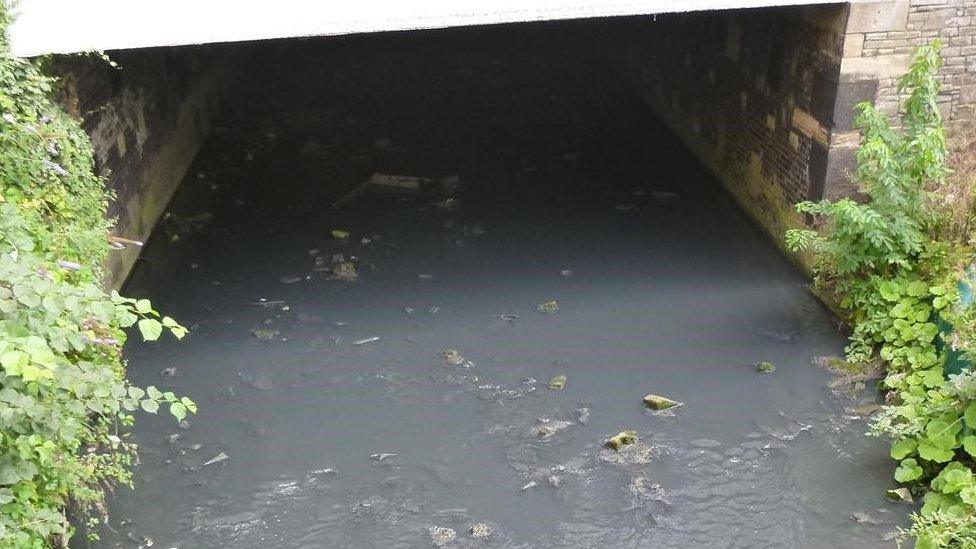Yorkshire Water must pay £900k after polluting dike
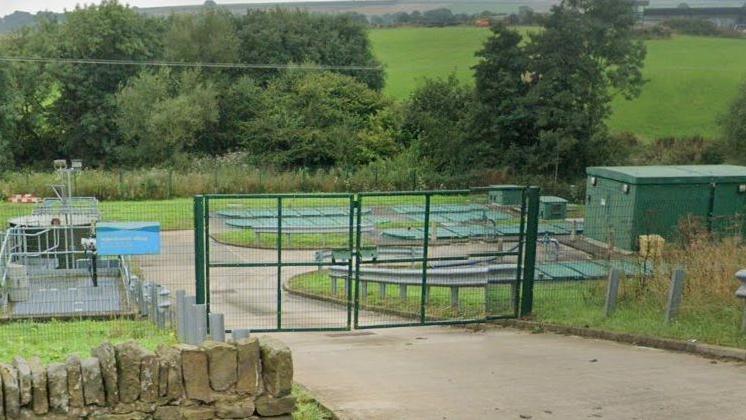
Ingbirchworth Water Treatment Works allowed millions of litres of chlorinated water into a freshwater watercourse
- Published
Yorkshire Water has been ordered to pay more than £900,000 after polluting a watercourse with millions of litres of chlorinated water, causing the death of hundreds of fish.
Sheffield Magistrates' Court heard how the firm's Ingbirchworth Water Treatment Works, near Barnsley, discharged intermittently into the freshwater watercourse linking Ingbirchworth and Scout Dike reservoirs for almost a month.
District Judge Tim Spruce said Yorkshire Water had shown a high degree of negligence, resulting in "a prolonged and catastrophic loss of aquatic life".
A spokesperson for the water company said: "We take our environmental responsibilities very seriously and we apologise for the harm that was caused."
It comes after the company pleaded guilty in February to one charge of polluting Ingbirchworth Dike, between 1 November and 29 November 2017.
According to the Environment Agency, approximately one million litres of chlorinated water was discharged per day, leading to more than 430 fish being found dead in a single day.
Jacqui Tootill, water industry regulation manager for the Environment Agency in Yorkshire, said: "This pollution was not caused by an unforeseen event or extreme weather.
"The systems were simply not robust enough, and this wouldn't have happened if proper checks had taken place."
"We're pleased Yorkshire Water has now been dealt with by the courts following our investigation."
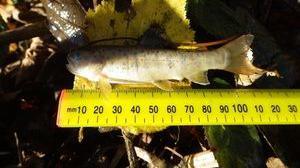
Even at low levels, chlorine is toxic to fish and other aquatic life
Ingbirchworth Water Treatment Works provides 90,000 people in Barnsley and South Yorkshire with drinking water every day and is fed by Ingbirchworth and Royd Moor reservoirs.
Water from the reservoirs passes through the works for treatment. It includes an underground 'clean water wash tank', containing chlorine.
Typically, at 87% capacity an inlet valve automatically opens allowing the tank to refill and when it reaches 91% capacity it should close.
The treatment site has an environmental permit which allows the discharge of chlorinated water via an overflow pipe into Ingbirchworth Dike, but only in emergency situations should the tank reach 96% capacity.
However, both before and during this incident, a capacity alarm was set at 97% meaning the overflow pipe would be discharging before any alarm was activated.
On 1 November 2017 an alarm was received in the Yorkshire Water control room which indicated the inlet valve to the tank had failed.
The valve was then manually opened to allow the tank to fill and maintain the water supply but maintenance operatives were unaware that the capacity alarm was set above the overflow pipe level.
This led to intermittent but regular discharges for 27 days.
On 26 November, Barnsley Trout Club reported dead fish at Scout Dike Reservoir.
Officers attended and counted 434 dead fish in a 1.5km stretch of water between the treatment works and the reservoir.
The Environment Agency alerted Yorkshire Water about the incident and the inlet valve of the 'clean water wash tank' was returned to automatic operation.
Judge Spruce agreed with the Environment Agency's assertion that the fish death total is likely to have been substantially higher.
'Fit for the future'
The judge said the company's other convictions, including several since this incident, suggested that despite higher fines available to courts, the incentive to improve regulatory compliance has had "a lukewarm reception".
The company was fined £865,000 - a figure substantially reduced by the judge due to Yorkshire Water's guilty plea - and ordered to pay costs of £34,979.79 and a victim surcharge of £170.
The firm said, since the incident, the firm had reviewed processes and procedures "to ensure this doesn't happen again", including moving the discharge pipes from the tank so that it discharges into on-site lagoons rather than the watercourse.
The company has also introduced a new regime of weekly proactive checks and has improved internal communication with operatives, it said.
A spokesperson said: "We've also invested in improved monitoring and equipment at Ingbirchworth Water Treatment Works.
"Separately, we know our wider pollution performance hasn't been where it should be.
"We are investing £8.3 billion over the next five years to improve service levels, cut pollution and make Yorkshire's water infrastructure fit for the future."
Get in touch
Tell us which stories we should cover in Yorkshire
Listen to highlights from South Yorkshire on BBC Sounds, catch up with the latest episode of Look North
Related topics
- Published31 May
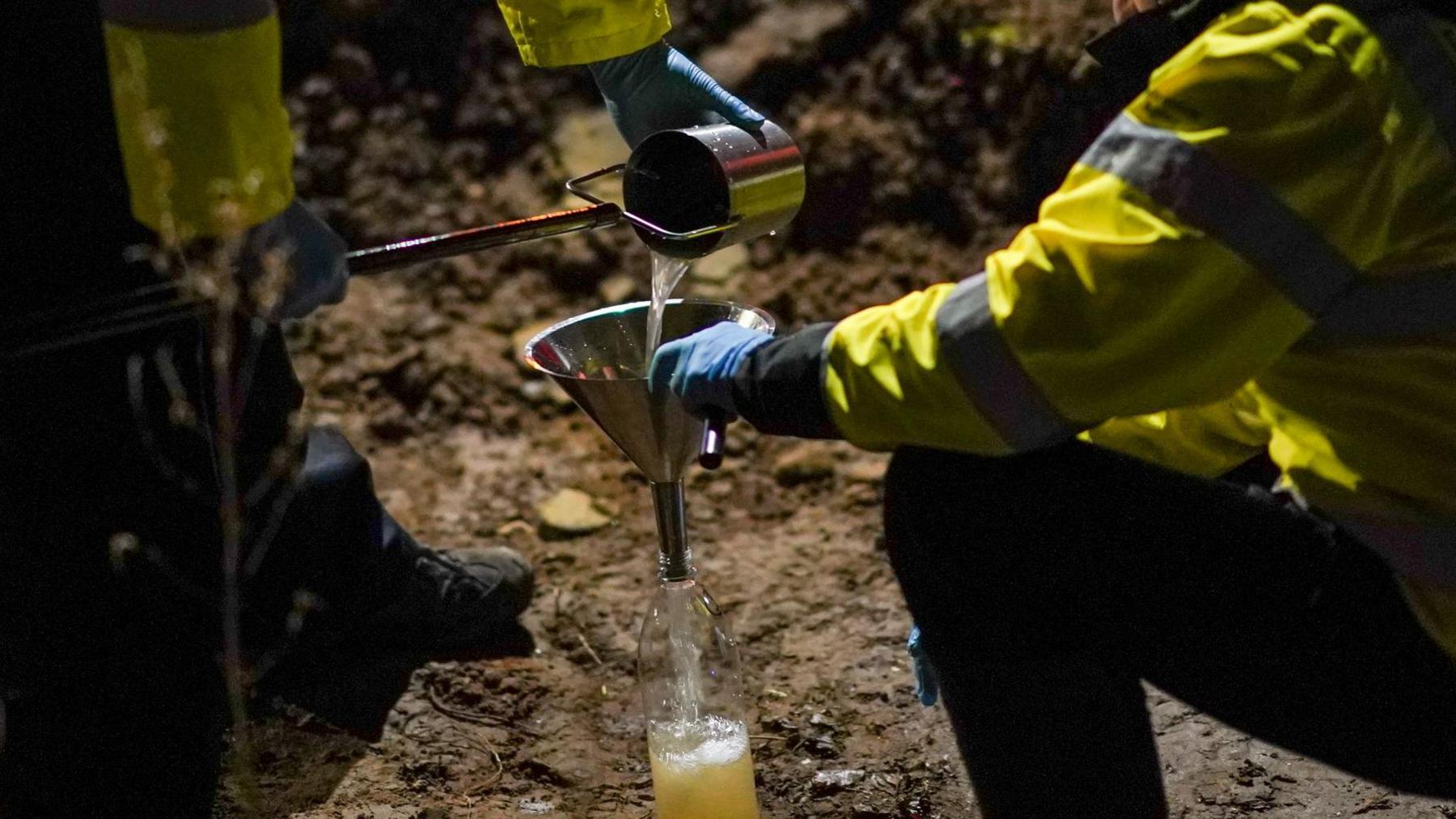
- Published20 March
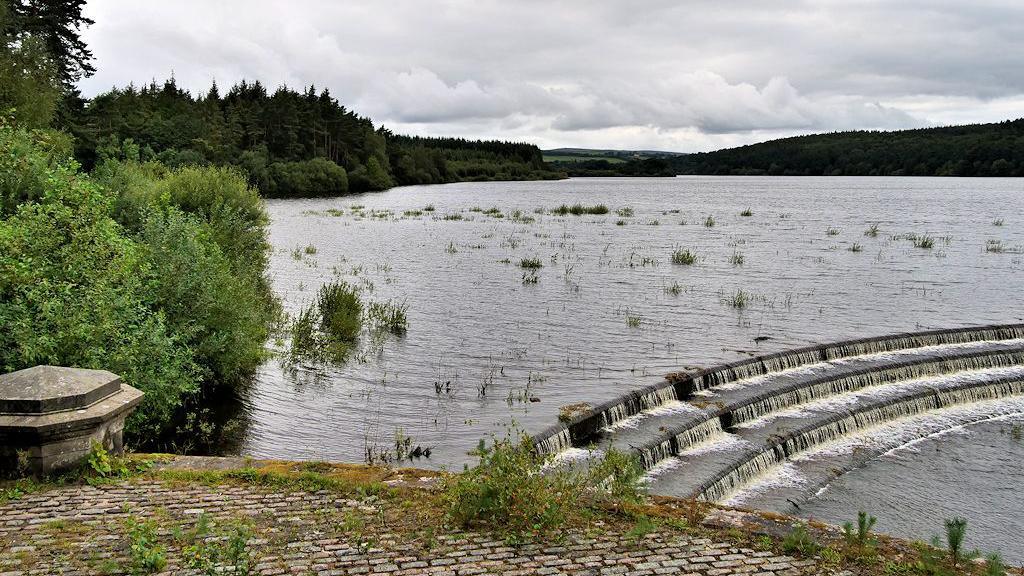
- Published18 July 2022
